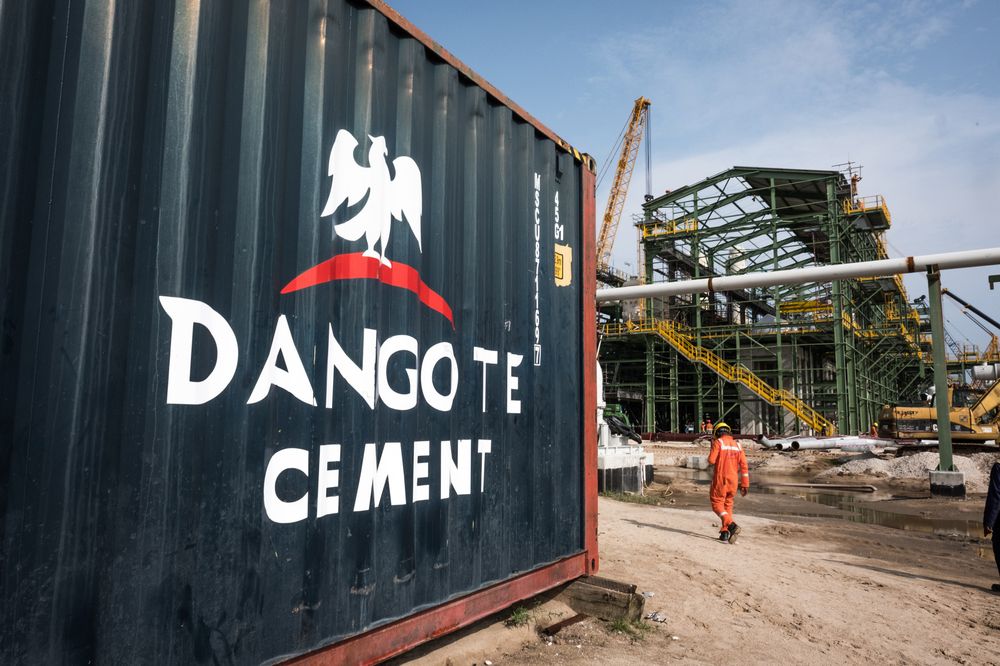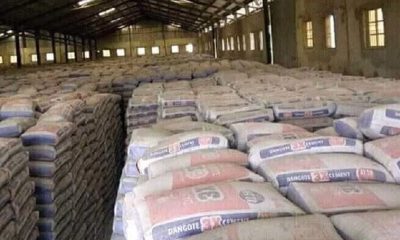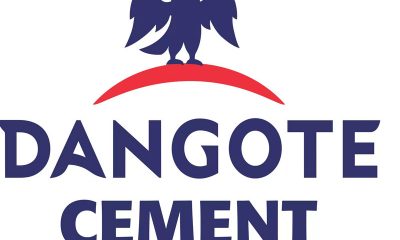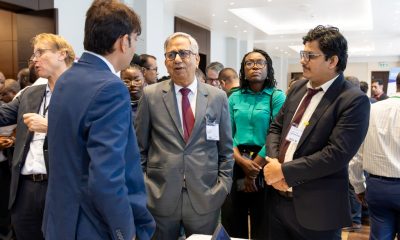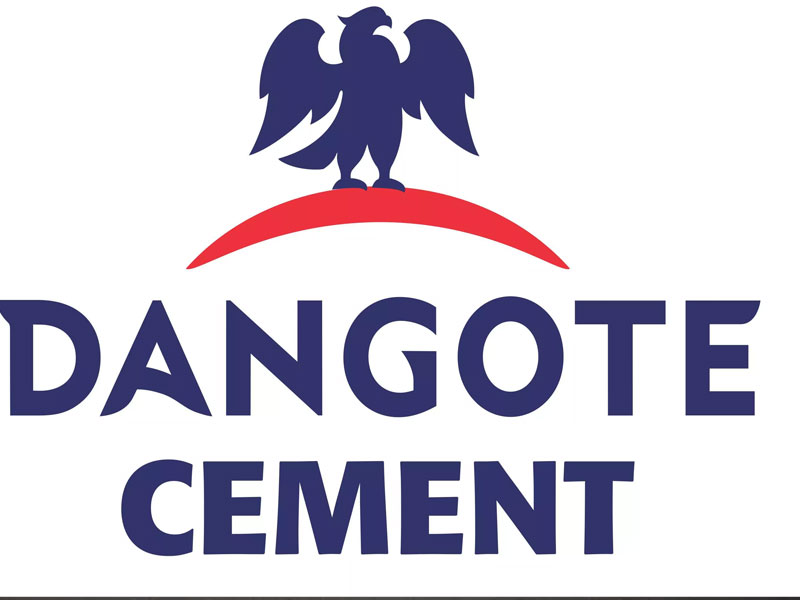Economy
Consumers Must Know Key Information About Products, Services—Dangote
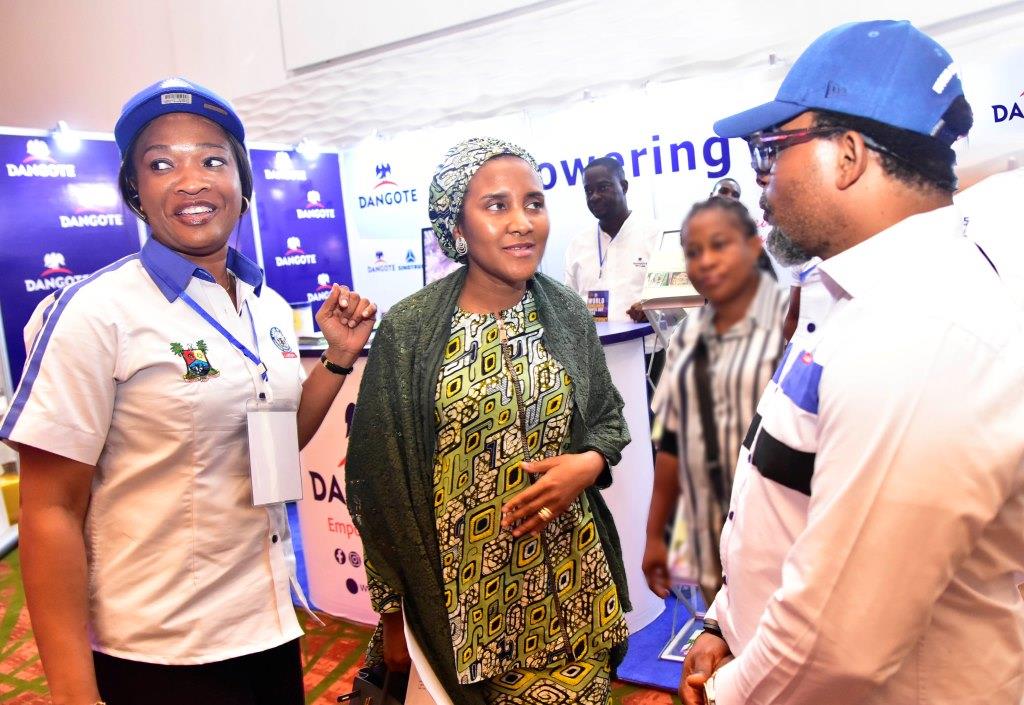
By Aduragbemi Omiyale
Manufacturers and others have been charged to focus on consumers’ rights, as they are entitled to know all the key information on the products and services they are paying for.
This was the submission of the Group Executive Director for Commercial Operations at Dangote Industries Limited (DIL), Ms Fatima Aliko Dangote.
The daughter of Africa’s richest man, Mr Aliko Dangote, while speaking last Friday in Lagos, stressed that the information must be accurate, transparent, and easily understandable.
“In these days of artificial intelligence, where consumers are buffeted with information on many products and services which may turn out to be false or less than what is promised”, they have the right to know all the key information on the product and services.
“We need businesses to adopt ethical business practices that prioritize the well-being of consumers and the planet. We need educational initiatives that empower consumers with the knowledge and skills to navigate the complexities of the modern marketplace,” she said at an event organised by the Lagos State Consumer Protection Agency (LASCOPA) to commemorate the 2024 World Consumer Rights Day.
She called for robust regulatory frameworks that safeguard consumer rights across borders as well as collective action from stakeholders to address the emerging challenges in the sector.
For Dangote Industries Limited, (DIL), however, she maintained that the company prioritizes the rights of its consumers in all its processes by adhering to the prescribed standards in ensuring that its products are safe for use and consumption.
She then called on manufacturers to adhere to the fundamental principles of consumer rights, which are the right to safety, and information, the right to choose, the right to redress, and the right to a healthy environment.
While warning that consumers who are adversely affected by harmful products will spend huge amounts of money and time on treatment, which affects productivity, she noted that Dangote product packages are labelled with accurate information that makes it easy for customers to make decisions.
“For us at Dangote Group, the consumer remains king, and issues on their rights remain at the forefront of our processes. We adhere to the prescribed standards to ensure that our products are safe for use and consumption. We believe that consumers will always demand goods and services that have safety standards.
“From cement to sugar, seasoning, salt, fertiliser, and refined petroleum products, we adopted high safety standards to ensure that consumers get the best from us. Harmful products will not affect only the consumer but in the long run, affect the industry and economy,” she said.
Ms Dangote noted that the event was an opportunity to reflect on the core values of fairness, transparency, and empowerment in the marketplace and on the rights of every individual who participates in the global economy as a consumer.
While noting that consumers play a vital role in the value chain as the final end-users of products and services, she stressed that they wield immense power, granting them the right to demand quality, safety, sustainability, and ethical practices from businesses and governments alike.
She recalled that the importance of the consumer led to the establishment of the Consumer Protection Council (CPC) which later became the Federal Competition and Consumer Protection Commission (FCCPC) with the mandate to educate consumers about their rights, responsibilities, and market dynamics as well as providing them with the knowledge and tools to make informed decisions and avoid anticompetitive and consumer protection violations.
She, however, noted that manufacturers and providers of services should understand that despite all precautions and efforts, consumers might find flaws and faults with products, hence, the need to have access to effective grievance mechanisms for upholding consumer rights.
“It is in recognition of this right that we established the Dangote Group Customer Care Centre. The centre is devoted to the needs, demands, and complaints of customers and consumers of our products. The Customer Care Centre caters to all categories of customers including those who are willing to become distributors of our products. We ensure that the rights of consumers are protected through prompt and effective resolution of issues and challenges that are brought to our attention. The centre serves as a feedback mechanism for consumers to tell us their impressions and feelings about our products,” she added.
Ms Dangote, who congratulated LASCOPA on the successful hosting of the event, said that consumers have the right to accurate, transparent, and easily understandable information about products and services. She said this is important, especially in these days of artificial intelligence, where consumers are buffeted with information on many products and services which may turn out to be false or less than what is promised.
“We need businesses to adopt ethical business practices that prioritize the well-being of consumers and the planet. We need educational initiatives that empower consumers with the knowledge and skills to navigate the complexities of the modern marketplace,” she said.
Economy
Seven Price Gainers Boost NASD OTC Bourse by 2.19%

By Adedapo Adesanya
Seven price gainers flipped recent declines at the NASD Over-the-Counter (OTC) Securities Exchange, raising the alternative stock market by 2.19 per cent on Friday.
According to data, the market capitalisation added N51.24 billion to end N2.389 trillion compared with the previous day’s N2.338 trillion, while the NASD Unlisted Security Index (NSI) climbed 85.65 points to close at 3,994.32 points, in contrast to the 3,908.67 points it ended a day earlier.
Business Post reports that the advancers were led by MRS Oil Plc, which improved its value by N13.00 to N200.00 per share from N187.00 per share, FrieslandCampina Wamco Nigeria Plc gained N7.40 to settle at N91.55 per unit versus the previous day’s N84.15 per unit, Central Securities Clearing System (CSCS) Plc appreciated by N6.08 to N71.00 per share from N64.92 per share, Afriland Properties Plc added 66 Kobo to finish at N17.17 per unit versus N16.51 per unit, IPWA Plc rose 37 Kobo to N4.15 per share from N3.78 per share, First Trust Mortgage Bank Plc grew by 11 Kobo to N1.20 per unit from N1.09 per unit, and Food Concepts Plc went up by 10obo to N3.70 per share from N3.60 per share.
On the flip side, there were two price losers led by Geo-Fluids Plc, which depreciated by 28 Kobo to N3.32 per unit from N3.60 per unit, and Industrial and General Insurance (IGI) Plc dropped 5 Kobo to sell at 45 Kobo per share from 50 Kobo per share.
Yesterday, the volume of trades went down by 92.0 per cent to 3.7 million units from 45.8 million units, the value of transactions fell by 59.4 per cent to N84.5 million from N208.2 million, while the number of deals went up by 7.7 per cent to 42 deals from 39 deals.
CSCS Plc remained the most traded stock by value (year-to-date) with 32.6 million units exchanged for N1.9 billion, trailed by Geo-Fluids Plc with 119.6 million units valued at N470.3 million, and Resourcery Plc with 1.05 billion units traded at N408.6 million.
Resourcery Plc closed the day as the most traded stock by volume (year-to-date) with 1.05 billion units sold for N408.7 million, followed by Geo-Fluids Plc with 119.6 million units worth N470.3 million, and CSCS Plc with 32.6 million units worth N1.9 billion.
Economy
FX Demand Worries Weaken Naira to N1,346/$1 at Official Market

By Adedapo Adesanya
The Naira weakened further against the United States Dollar in the Nigerian Autonomous Foreign Exchange Market (NAFEX) on Friday, February 20, by N4.97 or 0.37 per cent to N1,346.32/$1 from the N1,341.35/$1 it was transacted on Thursday.
Heightened FX demand tilted the market toward the downside yesterday, exerting upward pressure on rates despite efforts by the Central Bank of Nigeria (CBN) to stabilise the foreign exchange market.
Also in the official market, the domestic currency depreciated against the Pound Sterling during the session by N9.39 to sell for N1,815.25/£1 versus the previous day’s N1,805.86/£1, and lost N7.33 against the Euro to close at N1,584.62/€1 compared with the preceding session’s N1,577.29/€1.
The story was not different for the Nigerian Naira at the GTBank FX desk, where it depleted against the Dollar by N7 on Friday to quote at N1,356/$1 versus the N1,349/$1 it was sold a day earlier, but remained unchanged in the black market at N1,370/$1.
It was observed that risky sentiment among Foreign Portfolio Investors (FPIs) contributed to the FX market, amid fears of hot money flight due to capital gains tax and other factors.
As for the cryptocurrency market, it was mostly green yesterday in reaction to a Supreme Court verdict dismissing a fresh 10 per cent global levy by President Donald Trump.
The apex court on Friday described Mr Trump’s global tariff rollout as illegal. The decision did not clarify what should happen to tariff revenue already collected, and it doesn’t necessarily spell the end of the trade agenda, with multiple legal and executive avenues still available.
Litecoin (LTC) grew 2.7 per cent to $55.00, Cardano (ADA) appreciated 2.6 per cent to trade at $0.2815, Binance Coin (BNB) expanded by 2.6 per cent to $627.19, Dogecoin (DOGE) recouped 1.3 per cent to quote at $0.1, Ripple (XRP) jumped 0.7 per cent to $1.43, Solana (SOL) improved by 0.5 per cent to $84.15, and Ethereum (ETH) soared 0.1 per cent to $1,962.78.
However, Bitcoin (BTC) lost 0.2 per cent to sell for $67,850.49, while the US Dollar Tether (USDT) and the US Dollar Coin (USDC) traded flat at $1.00 each.
Economy
Fidson, Jaiz Bank, Others Keep NGX in Green Territory

By Dipo Olowookere
A further 0.99 per cent was gained by the Nigerian Exchange (NGX) Limited on Friday after a positive market breadth index supported by 53 price gainers, which outweighed 23 price losers, representing bullish investor sentiment.
During the trading day, the trio of Jaiz Bank, Fidson, and NPF Microfinance Bank chalked up 10.00 per cent each to sell for N11.00, N86.90, and N6.27, respectively, while Deap Capital appreciated by 9.96 per cent to N7.62, and Mutual Benefits increased by 9.94 per cent to N5.42.
Conversely, Secure Electronic Technology shed 10.00 per cent to trade at N1.62, Sovereign Trust Insurance slipped by 9.73 per cent to N2.32, Ellah Lakes declined by 7.91 per cent to N12.80, International Energy Insurance retreated by 5.56 per cent to N3.40, and ABC Transport moderated by 5.26 per cent to N9.00.
Data from Customs Street revealed that the insurance counter was up by 2.52 per cent, the industrial goods sector grew by 2.28 per cent, the banking space expanded by 1.43 per cent, the consumer goods index gained 1.23 per cent, and the energy industry rose by 0.05 per cent.
As a result, the All-Share Index (ASI) went up by 1,916.20 points to 194,989.77 points from 193,073.57 points, and the market capitalisation moved up by N1.230 trillion to N125.164 trillion from Thursday’s N123.934 trillion.
Yesterday, investors traded 820.5 million stocks valued at N28.3 billion in 63,507 deals compared with the 898.5 million stocks worth N38.5 billion executed in 61,953 deals, showing a jump in the number of deals by 2.51 per cent, and a shortfall in the trading volume and value by 8.68 per cent and 26.49 per cent apiece.
Closing the session as the most active equity was Mutual Benefits with 79.0 million units worth N427.1 million, Zenith Bank traded 44.0 million units valued at N3.8 billion, Chams exchanged 43.9 million units for N182.0 million, AIICO Insurance transacted 42.4 million units valued at N179.8 million, and Veritas Kapital sold 36.0 million units worth N90.6 million.
-

 Feature/OPED6 years ago
Feature/OPED6 years agoDavos was Different this year
-
Travel/Tourism10 years ago
Lagos Seals Western Lodge Hotel In Ikorodu
-

 Showbiz3 years ago
Showbiz3 years agoEstranged Lover Releases Videos of Empress Njamah Bathing
-

 Banking8 years ago
Banking8 years agoSort Codes of GTBank Branches in Nigeria
-

 Economy3 years ago
Economy3 years agoSubsidy Removal: CNG at N130 Per Litre Cheaper Than Petrol—IPMAN
-

 Banking3 years ago
Banking3 years agoSort Codes of UBA Branches in Nigeria
-

 Banking3 years ago
Banking3 years agoFirst Bank Announces Planned Downtime
-

 Sports3 years ago
Sports3 years agoHighest Paid Nigerian Footballer – How Much Do Nigerian Footballers Earn


